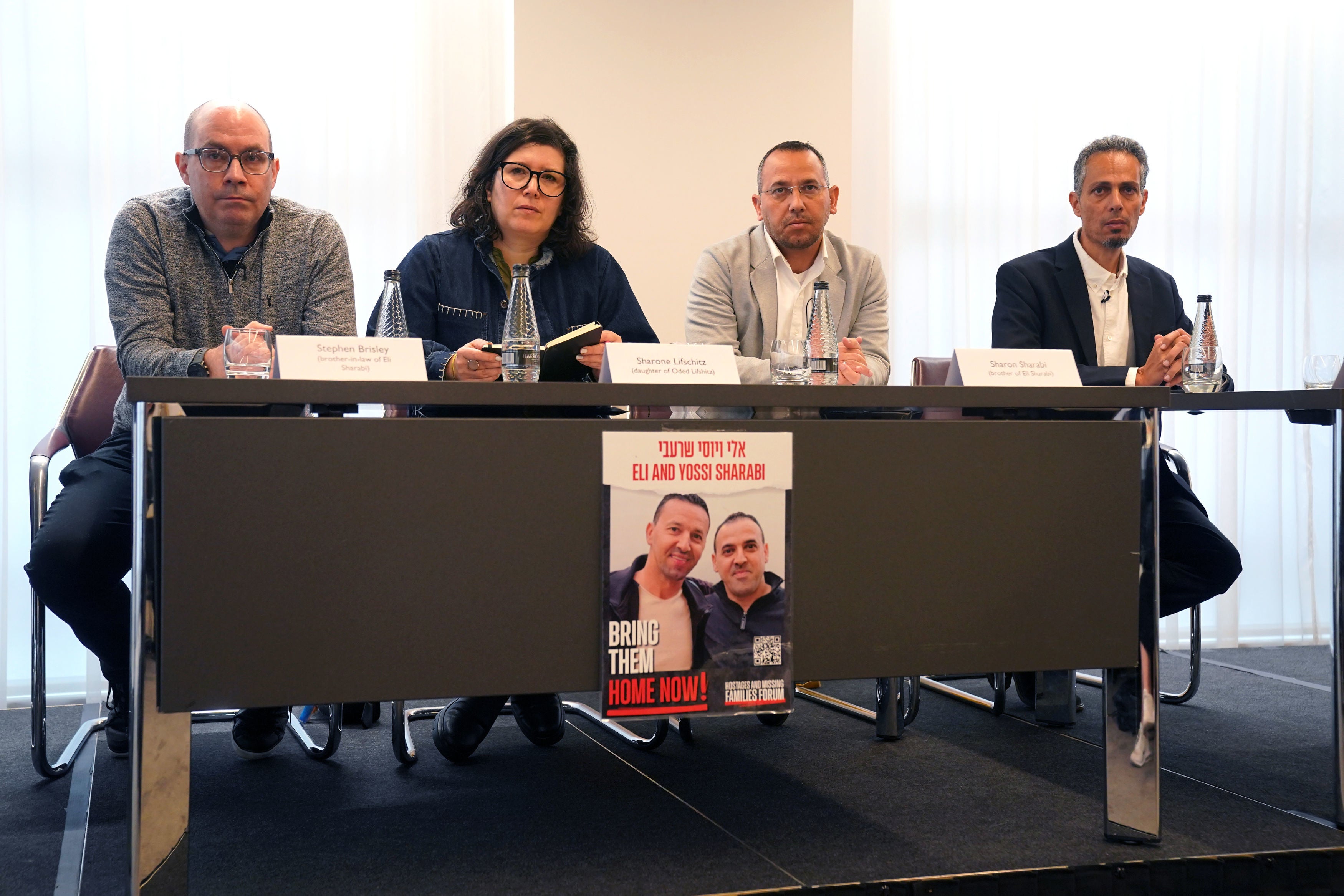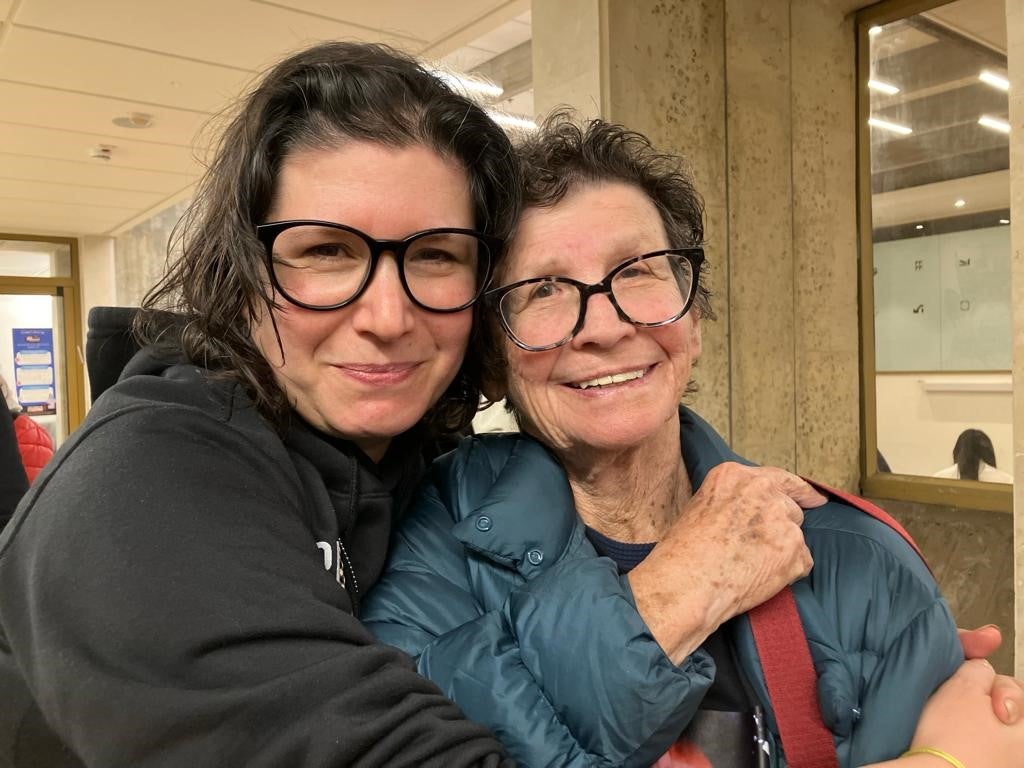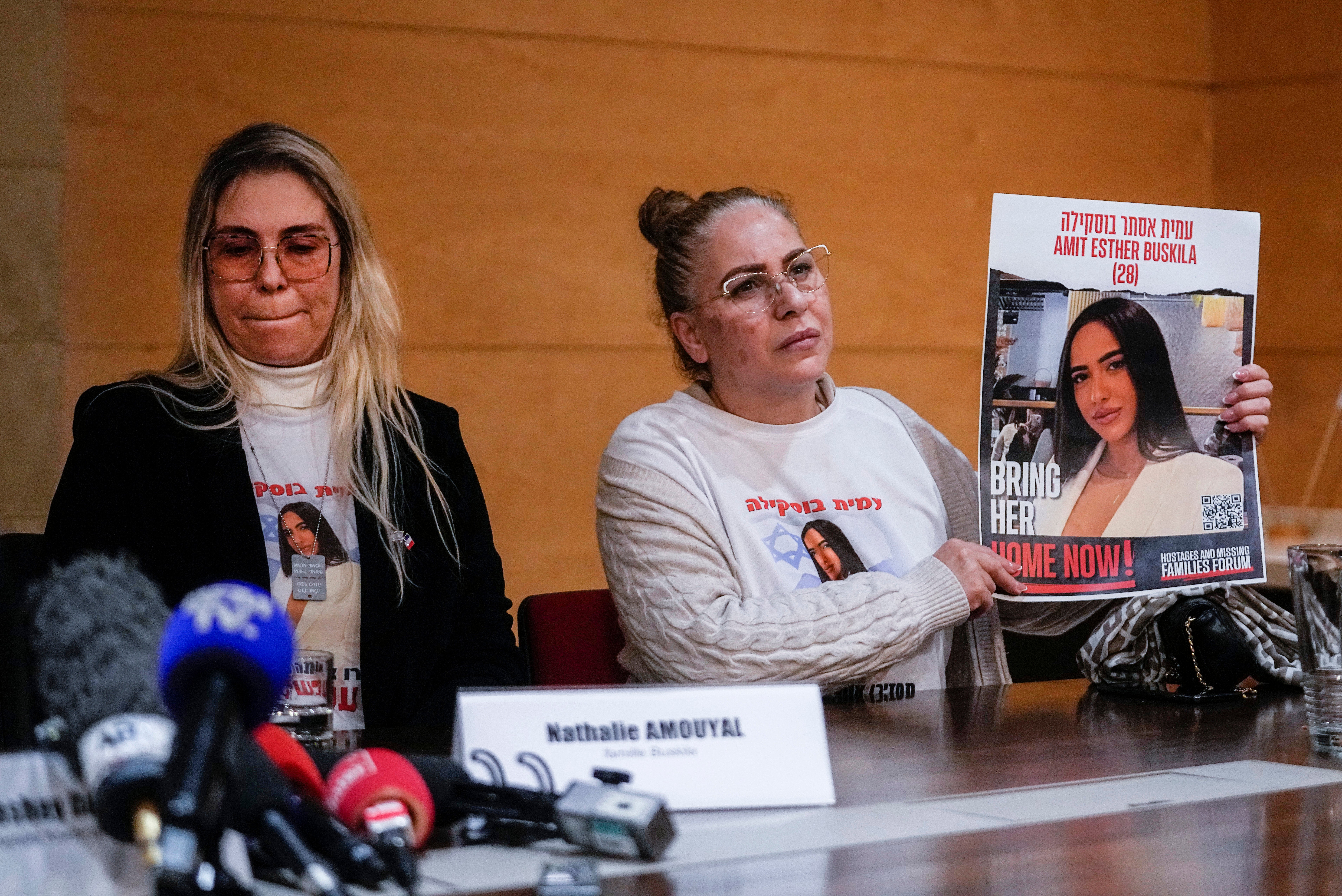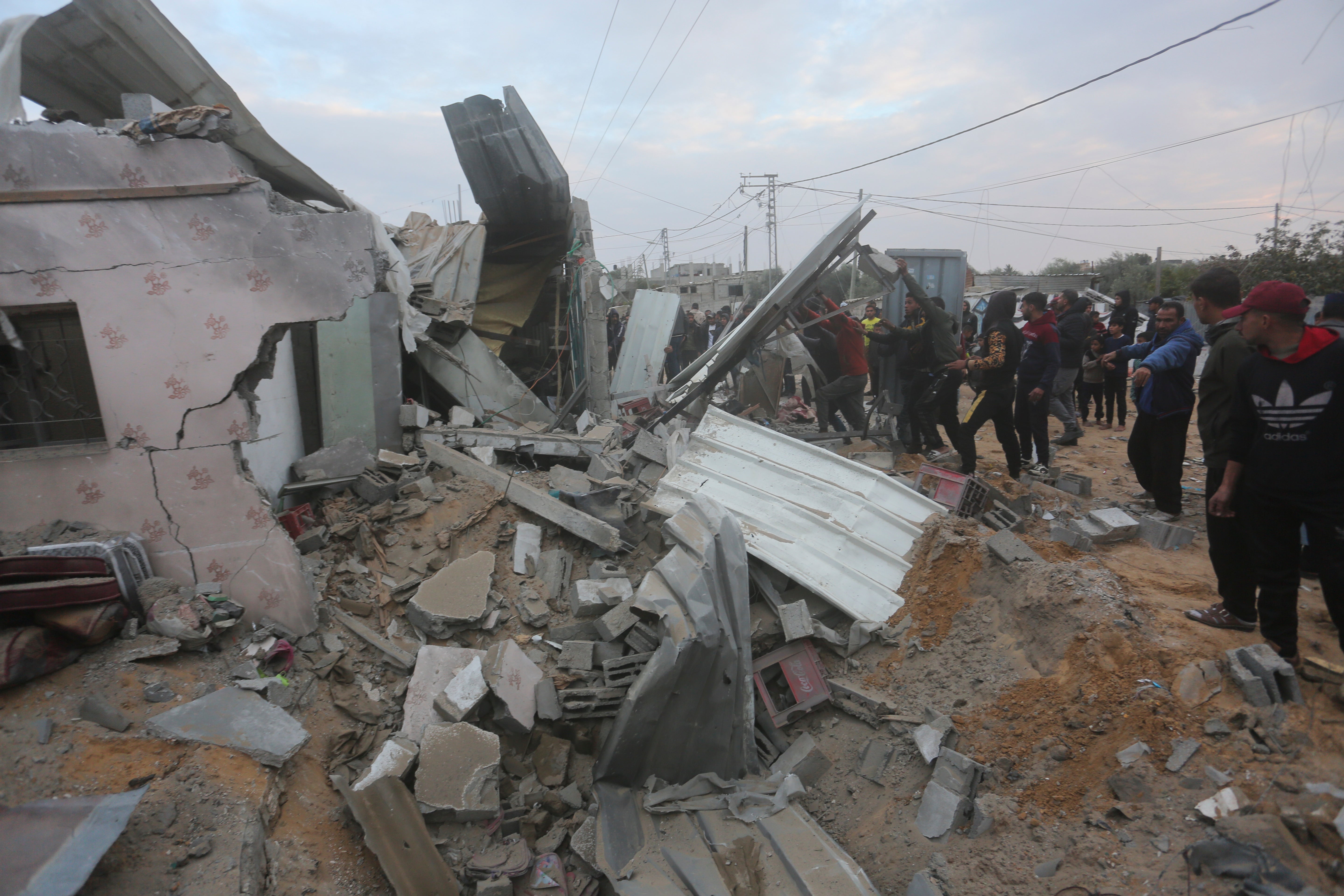British families warn hostages held by Hamas ‘cannot survive’ any longer as time runs out for captives
Sharone Lifschitz, daughter of 83-year-old hostage Oded Lifschitz issued fresh warning after it emerged 31 of the capitves have been killed since 7 October

Your support helps us to tell the story
From reproductive rights to climate change to Big Tech, The Independent is on the ground when the story is developing. Whether it's investigating the financials of Elon Musk's pro-Trump PAC or producing our latest documentary, 'The A Word', which shines a light on the American women fighting for reproductive rights, we know how important it is to parse out the facts from the messaging.
At such a critical moment in US history, we need reporters on the ground. Your donation allows us to keep sending journalists to speak to both sides of the story.
The Independent is trusted by Americans across the entire political spectrum. And unlike many other quality news outlets, we choose not to lock Americans out of our reporting and analysis with paywalls. We believe quality journalism should be available to everyone, paid for by those who can afford it.
Your support makes all the difference.The family of hostages being held captive in Gaza have issued a desperate plea for their release after it emerged dozens had been killed since the 7 October Hamas attacks.
Sharone Lifschitz, daughter of 83-year-old hostage Oded Lifschit warned many captives could not survive for much longer if a deal wasn’t secured.
The Israeli military said on Tuesday that 31 hostages in Gaza have been killed since the Hamas attacks with 136 believed to still be held in the region.
“We need that deal to happen now,” Ms Lifschitz said. “If it does not come through, it will be a longer wait and many of the hostages simply cannot survive it.”
Raz Matalon, Stephen Brisley and Sharon Sharabi, all relatives of captives being held in Gaza, also warned time was running out and urged stakeholders to secure a deal.
Mr Brisley, of Bristol, said he was speaking as a family member of kidnapped civilians and urged “all stakeholders” to reach a ceasefire and exchange deal.

Qatar, which acts as a negotiator between Israel and Hamas, said the militant group had a “generally positive” response to proposals for a break in the fighting and release of Palestinian prisoners for the return of more Israeli hostages.
The deal, drawn up more than a week ago by US and Israeli spy chiefs at a meeting with the Egyptians and Qataris, would secure the release of remaining hostages held by militants in Gaza in return for a long pause to fighting and further release of Palestinian prisoners.
The US secretary of state, Antony Blinken, speaking with the Qatari PM on his fifth tour of the region since the 7 October attacks, said he would discuss Hamas’s response with Israel on Wednesday.

“There’s still a lot of work to do be done, but we continue to believe that an agreement is possible, and indeed essential,” Mr Blinken said.
While Mr Blinken gave no indication of how the US views the response, President Joe Biden described it as “a little over the top” - suggesting the Israeli leadership will not easily agree to what the group is asking.
As of 30 November, the final day of the last ceasefire, 105 civilian hostages had been released from Gaza which included 81 people from Israel, 23 Thais and one Filipino.

Speaking about the 31 killed, Rear Admiral Daniel Hagari, a spokesman for the Israel Defense Forces (IDF), said their families had been informed and that the authorities would continue to push for the return of the remaining captives.
“This is a moral obligation, national obligation and international obligation and this is our compass and this is how we will continue operating,” said Mr Hagari.
Hamas says it must produce a definitive end to the war. Israel says it will not halt the war permanently until Hamas is destroyed.
Join our commenting forum
Join thought-provoking conversations, follow other Independent readers and see their replies
Comments